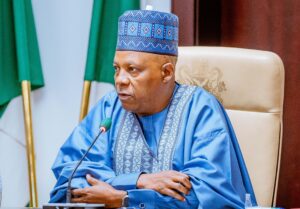
Increasing energy cost, currency depreciation, insecurity challenges to investors — CPPE
By Ogaga Ariemu
Centre for Private Promotion Enterprise(CPPE) has highlighted increasing energy cost, currency depreciation, insecurity as major challenges facing investors in Nigeria.
CPPE CEO, Dr Muda Yusuf stated this on Sunday in a document titled ‘Half Year Economic Review.’
This is coming as the Minister of Finance and Budget, Mrs Zainab Ahmed during the presentation of the 2023-2025 Medium Term Expenditure Framework(MTEF) held last week, painted a gloomy and disturbing picture of the state of government finances, suggesting that the government is on the brink of bankruptcy.
To add perspective to the situation of Nigeria’s economy, Muda gave a detailed analysis in the document cited by Nigerian NewsDirect.
Yusuf said the key elements of the review are trends in our exchange rate, inflation, GDP debt profile and fiscal operations of government. The exchange rate depreciated significantly in the parallel market to over N600/dollar.
In his explanation, Dr Muda stated that in June inflation rose to 18.7 per cent due to “Exchange rate depreciation; high energy cost, increasing financing of deficit by the Central Bank of Nigeria, problem of insecurity which is affecting agricultural production and high cost of logistics.”
He disclosed that, “Investors across sectors in the economy are concerned about the high and increasing energy costs especially the cost of diesel which has gone up by over 300 per cent, the cost of aviation fuel which has gone up by another 300 per cent, the cost of gas which has increased by over 100 per cent. The cost of PMS is still moderately tolerable because of the subsidy regime that is still currently being provided by government.
“Many businesses have suffered serious dislocations as a consequence of foreign exchange liquidity challenges, volatility and the depreciation of the currency.
“These have severely affected businesses across all sectors of the economy. Costs of operation and production have gone up from between 30-100 per cent as a result of the exchange rate crisis in Nigeria.”
Yusuf further stated that the “Worsening insecurity in Nigeria is a major problem for investors in the economy. Many Industrialists especially those who are in the agro-allied sector are grappling with challenges getting raw materials from the crop producing areas of our country.
“This has continued to negatively impact capacity utilisation, turnover, cost of production and the value delivery to shareholders. Some now source raw materials from neighbouring West African countries.”



